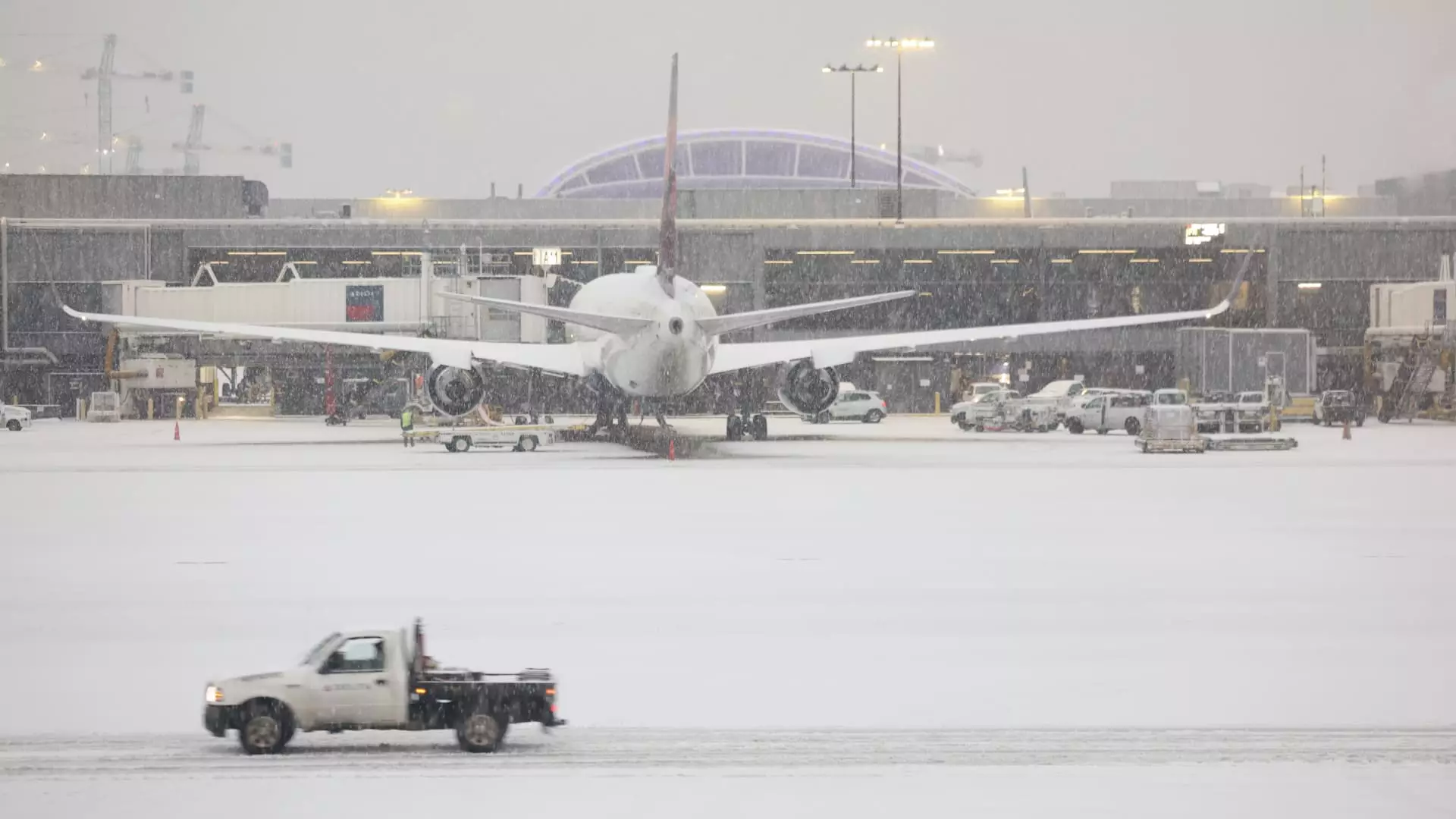The Southern United States faced unparalleled travel disruptions over the past weekend as an intense winter storm wreaked havoc on airline operations. More than 2,000 flights were canceled on Friday alone, with an additional 2,000 flights experiencing delays. This extraordinary level of disruption emphasizes the challenges airlines face during severe weather events and the ripple effects it can cause across the travel Industry.
A critical incident at Hartsfield-Jackson Atlanta International Airport, known for being the busiest airport in the world, further complicated matters. A Delta Air Lines Boeing 757-300 aborted its takeoff due to an engine malfunction, leading to an emergency evacuation of all 201 passengers and crew members using slides. Delta’s swift reaction showed their commitment to safety, as they adhered to established protocols to ensure the wellbeing of everyone on board. In their statement, they recognized the inconvenience experienced by passengers and expressed their determination to assist in getting travelers to their destinations safely and efficiently.
Flight tracking service FlightAware reported that nearly 900 flights to and from Atlanta were scrapped, which accounted for approximately 40% of the airport’s scheduling for the day. The situation escalated as a groundstop was enforced, preventing flights from entering Atlanta to avoid overwhelming the airport with stranded aircraft. Such measures are critical in managing air traffic during crises but can prolong the frustration for travelers stuck at their departure airports.
Besides Atlanta, the snowstorm also heavily affected American Airlines’ major hubs, particularly at Dallas/Fort Worth International Airport and Charlotte Douglas International Airport. Together, these two airports saw an estimated 1,000 flights canceled, especially since DFW experienced the storm’s impact starting Thursday. The gravity of these cancellations illustrates the interconnected nature of air travel—cancellations in one region can have a cascading effect on flights nationwide.
In the wake of the travel turmoil, airlines such as Delta, American, and Southwest proactively lifted change fees and fare differences for passengers affected by the storm. While such policies aim to alleviate the burden on travelers, they also reveal the essential role airlines play in consumer service during extreme conditions. By making it easier for customers to alter travel plans without incurring additional costs, airlines show their commitment to customer care amidst challenging circumstances.
The winter storm that unfolded over the weekend served as a reminder of the vulnerabilities faced by the aviation sector. As storms become more unpredictable, airlines must continue to improve their preparedness and response strategies. While the safety of passengers remains a top priority, the industry must also adapt to ensure that disruption in air travel is minimized, ultimately improving the overall flying experience for everyone involved.

